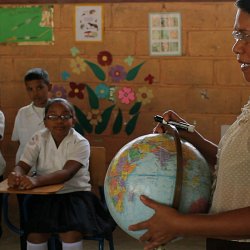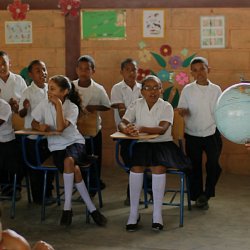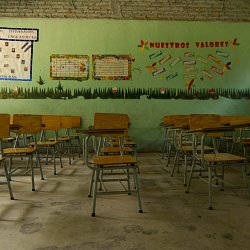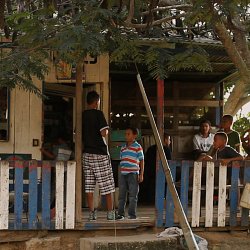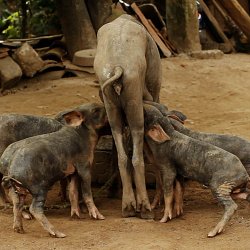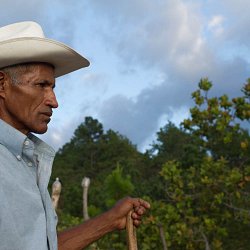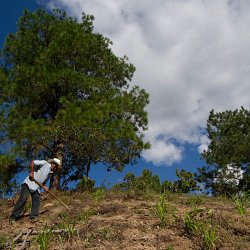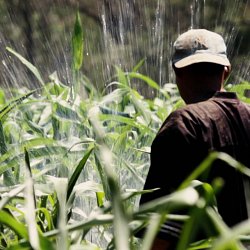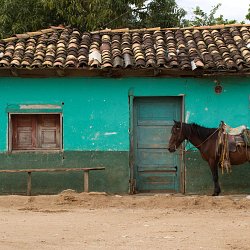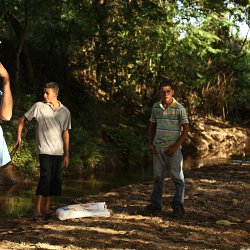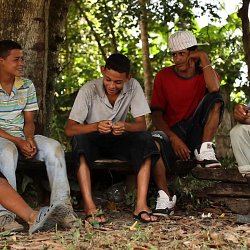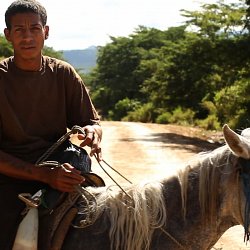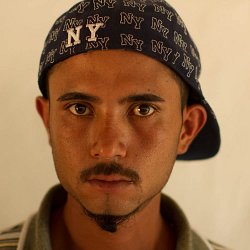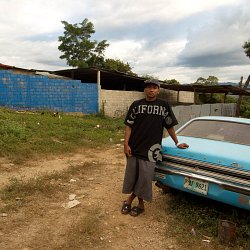Why do people leave their homes and travel north to the US-Mexico border?
Mario Bronfman, Ford Foundation
This is a simple question with a deeply complex answer. People living in Central America face a diverse set of conditions that makes it necessary for them to migrate north. First and foremost of these is poverty and income inequality. Employment opportunities are particularly limited for people who live in rural and marginalized communities. Other factors that contribute to people’s decisions to migrate include limited access to land and forests, political instability, natural disasters, soil degradation in agricultural communities, insecurity related to drug-trafficking and gang violence, and the need to maintain family bonds with kin who have already migrated.
The film “Who Is Dayani Cristal?” illuminates the human side of migration from this region, the reasons why migration is at times the only means of survival, and the cost paid by those who leave and those left behind. In the current political and social climate in Central America, and in the face of current policy, migration has a multifaceted impact on communities of origin, causing them to grapple with the rights and responsibilities of those who leave and those who stay behind.
On the side of detriment to communities, migration has weakened traditional institutions central to managing natural resources and controlling illicit activities. Villages, cities, and entire countries are losing many of their “best and brightest,” with negative consequences for renewing and improving leadership. This severely undercuts community political processes, social cohesion, and the capacity to manage natural resources.
There are benefits of migration to those left behind. The role of women in their communities has been strengthened in part due to migration, as they are challenged to assume new roles and greater responsibilities because men are leaving their homes – and rural women in particular are expanding their participation in local economic, political and civic processes. But women still encounter many barriers to exercising their rights by existing political and social constructs.
The most widely discussed benefit of migration is the question of remittances, which allow family members to cover basic consumption needs and can enable children to attend school. But in the context of Central America, the lack of appropriate development programs and policies, as well as financial institutions, make it nearly impossible for these transfers to have long-term positive transformative effects on communities. In some instances, remittances distort local economies to the detriment of those households that do not receive them ― for example, the insertion of money into a community can inflate prices for land and labor.
In our work at the Ford Foundation Mexico, we have been looking at the factors that would be required to keep people at home if they choose to remain – in other words, to exercise their “right not to migrate.” The public policy agenda is not always clear and can vary from region to region. A common theme, however, is reducing barriers and increasing technical and financial support to small-scale producers. We believe the NGO and philanthropic communities can play a strong role in working toward this, if we start to look systemically at economic development in Central America. We must first understand the inherent challenges plaguing specific regions, and then develop or support efforts to increase and stabilize livelihoods and build assets for poor households over the long term. Specific strategies will vary according to local context and challenges, but there are ways to put drivers into place that strengthen local communities.
For example, we should support specific initiatives that involve small-scale producers and represent competitive advantages in local, regional, or international markets. This may include developing new industries or strengthening existing ones via business development, increased productivity and efficiency, and access to finance. We should also strengthen the capacity of local organizations, networks, and other relevant actors that provide the necessary infrastructure, skills, knowledge, and enabling environment to support livelihood development. We should further identify and advocate with partners that can help bring initiatives to scale and address bottlenecks. These partners may include policy makers, private sector, other NGOs or local support organizations, and donors. Finally, we need to coordinate and pool resources – both technical and financial – that are necessary to address local and regional challenges and opportunities for local economic development.
Some examples of how the Ford Foundation has invested and supported economic development projects in Central America that intend to reduce migration pressures include:
Helping Fair Trade coffee cooperatives and other small producers’ associations in the Guatemalan highlands improve their market positioning, competitiveness and internal management
Developing alternative production and value chain processes in poor farming communities in Central America,
Improving the competitiveness of shrimp cooperatives along El Salvador’s Pacific Coast;
Helping beekeeping women from poor, small-scale coffee-growing families in Guatemala improve household income by increasing production of honey and other bee-based products and identifying new markets;
Training Salvadoran youth in social entrepreneurship and providing them seed capital to start social enterprises that benefit their communities as an alternative to out-migration;
Strengthening livelihoods and reducing poverty among smallholder cacao farmers in Nicaragua through a value chain intervention that addresses challenges in production, processing and marketing.
Through these and similar efforts, we support local and international organizations that implement projects on the ground, always looking for opportunities to coordinate with government agencies, private sector firms, other donors, and other relevant resource partners.
The Ford Foundation sees a timely opportunity to take a broad approach to address the underlying development and social problems that provoke migration -- to address migration that emphasizes the right not to migrate.
